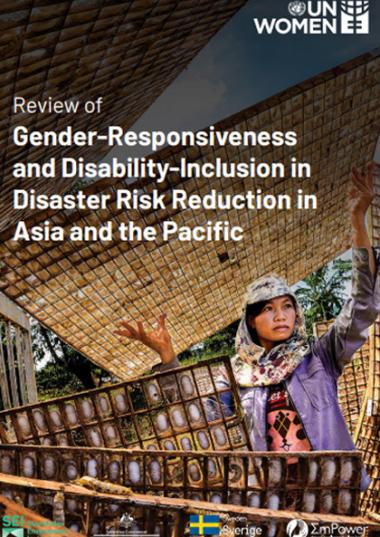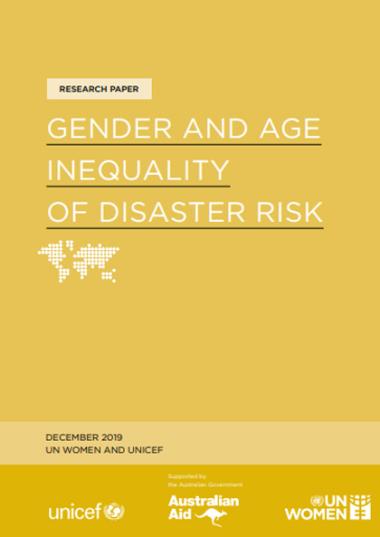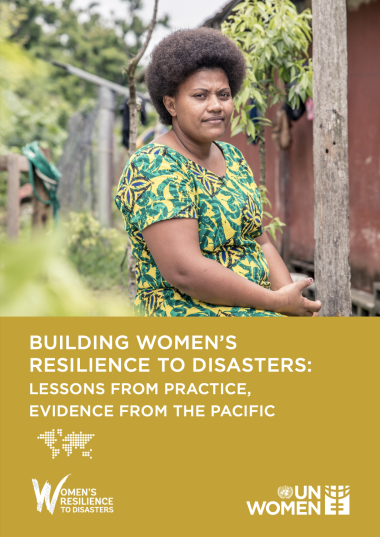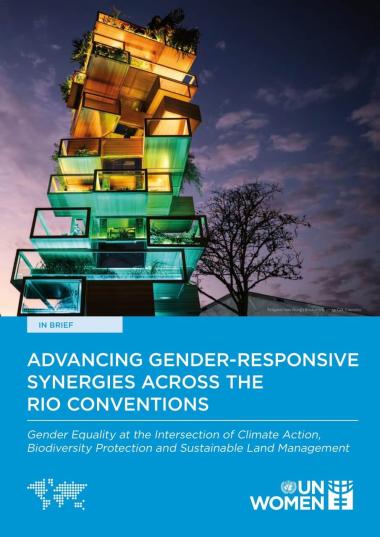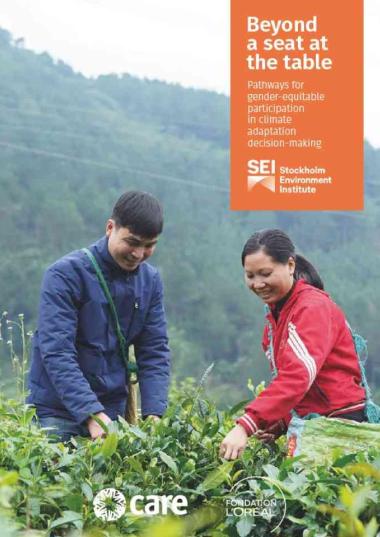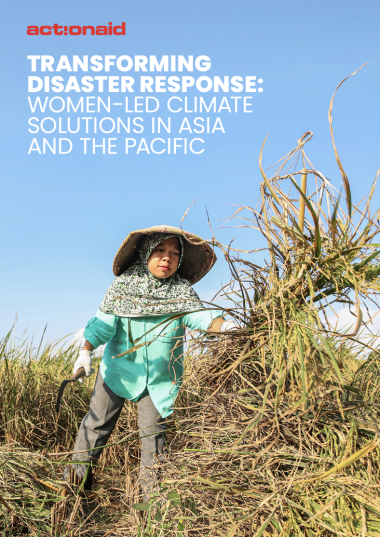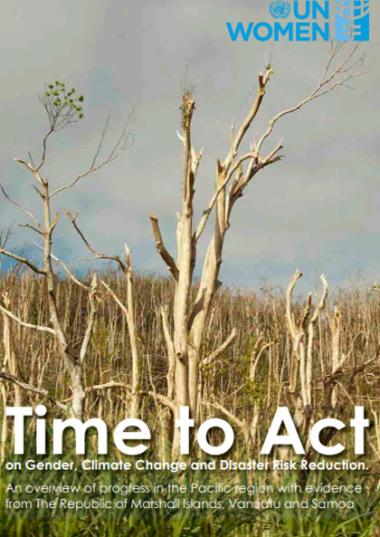
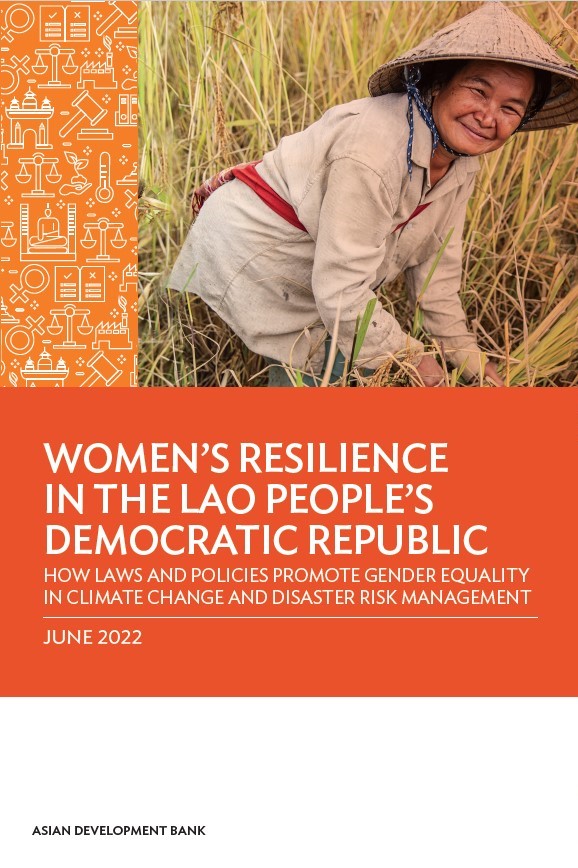
Women's resilience in the Lao People's Democratic Republic: How laws and policies promote gender equality in climate change and disaster risk management
May 2022
The Lao People’s Democratic Republic (Lao PDR) faces significant sustainability and environmental challenges that are amplified by climate change. While the Lao PDR is not as highly exposed to natural hazards as its neighbors, its limited economic resources create challenges for disaster management and climate change adaptation. Hydrological hazards such as flooding, droughts, and storms frequently impact rural areas, affecting the agricultural livelihoods on which most of the population relies. They also cause disease outbreaks, threaten food security, and force communities to migrate due to concerns for personal safety and the security of their livelihoods. Most of the land in the Lao PDR is degraded due to the impacts of droughts, flooding, and landslides, as well as the unsustainable use of natural resources, which has been accelerated by the marketization of agriculture. As a country with approximately 60% forest cover, the Lao PDR aims to strike a balance between the economic benefits of the forestry industry and the climate change mitigation and adaptation benefits of forest conservation.
The purpose of this report was to conduct a gender analysis of the national legal and policy frameworks of the Lao PDR to determine whether laws, policies, and strategies consider gender inequalities as they relate to climate and disaster risk and contribute to strengthening women’s resilience. The analysis of the selected laws and policies informed an assessment of the extent to which equality and discrimination concepts are explicit in laws and policies and how this affects women’s resilience to climate and disaster risks. The report methodology included secondary data collection and analysis, support by a country mission, stakeholder interviews, and national workshops.
This Lao People’s Democratic Republic (Lao PDR) country report is part of a series of publications that applies the National Good Practice Framework presented in the regional report Gender-Inclusive Legislative Framework and Laws to Strengthen Women’s Resilience to Climate Change and Disasters, to explore the extent of integration of gender considerations in CCDRM laws, policies and plans in Fiji, the Lao PDR, and Mongolia. It was prepared under a regional knowledge and support technical assistance project on Strengthening Women’s Resilience to Climate Change and Disaster Risk in Asia and the Pacific. The project specifically aims to increase the capacity of these three countries to develop and advance gender-responsive CCDRM national and sector policies and laws. It also contributes to the wider thrust of the ADB Gender Equality Thematic Group to promote national legislation that supports women’s resilience through gender-inclusive approaches to CCDRM.
